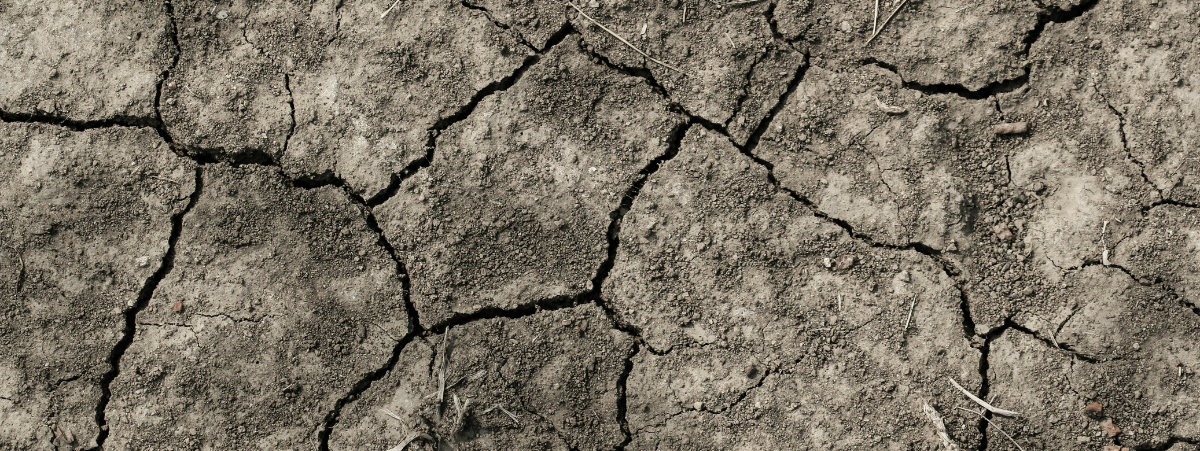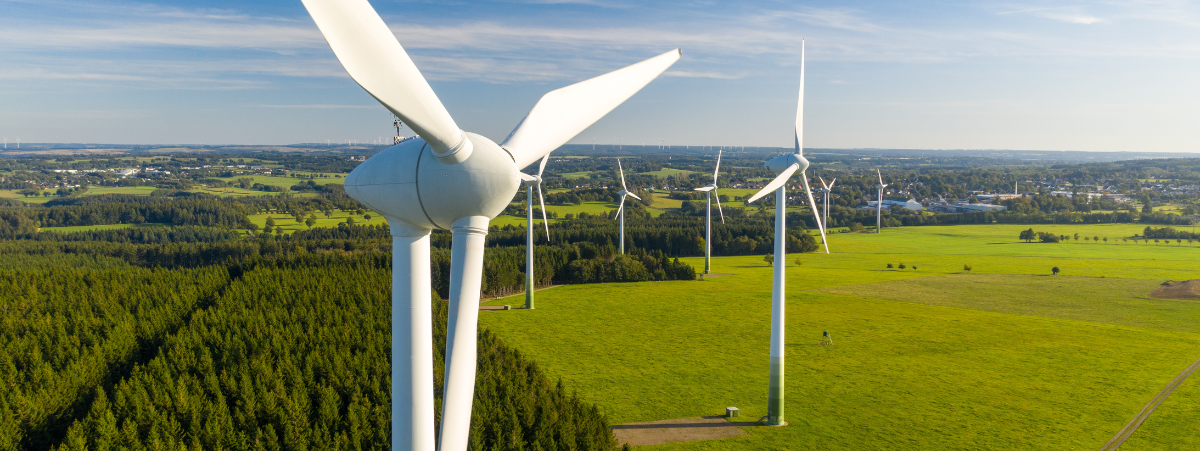The Climate Change 2022: Impacts, Adaptation and Vulnerability report by the Intergovernmental Panel on Climate Change (IPCC) stresses the need for urgent action to mitigate and adapt to the effects of global warming.
Failed climate leadership
The conclusions of the report released on February 28 are clear: not enough is being done to mitigate and adapt to climate change, and this could lead to disastrous consequences.
Reacting to the findings, Secretary-General of the United Nations Antonio Guterres did not mince his words: “Today’s IPCC report is a damning indictment of failed climate leadership(…). This abdication of leadership is criminal.”
Back in 2015, the international community agreed to do everything in their power to limit global warming to 1.5°C, a commitment sealed by the Paris Agreement. This level of warming will already lead to climate hazards and biodiversity losses. Now, the report has revealed that even temporarily exceeding this warming level would result in severe impacts, some of which will be irreversible.
For instance, if global warming increases from 1.5°C to 3°C, the risk of biodiversity loss will increase tenfold. At 2°C of warming, regions dependent on snowmelt could experience a 20% decline in water availability for agriculture, leading to knock-on repercussions for food security and health.
- The decade of climate action: Where are we after two years?
- Paris Agreement: Top 3 Article 6 questions that were answered at COP26
Climate injustice
One of the main conclusions of this latest IPCC report is that people and ecosystems least able to cope with the effects of global warming are being hardest hit by the dangerous and widespread disruption in nature caused by human-induced climate change.
Low-income communities most affected by climate risks
Geographically, between 3.3 and 3.6 billion people live in hotspots of high vulnerability to climate change, mostly in Africa, Asia, Central and South America, small islands and the Arctic.
In cities, the effects of global warming are magnified, aggravating pollution events and limiting the functioning of key infrastructure. These impacts are concentrated amongst economically and socially marginalized urban residents, particularly in informal settlements.
Commenting on adaptation efforts, the report’s authors pointed to examples of maladaptation, such as poorly built walls to protect coastal populations from the sea rise, and noted that these are most common in low-income and vulnerable communities that don’t have access to the resources needed to implement effective adaptation methods.
Inclusive adaptation must include indigenous and local knowledge
In order to accelerate adaptation to climate change, the IPCC recommends implementing inclusive governance that prioritizes equity and justice. “Maladaptation especially affects marginalized and vulnerable groups adversely (e.g., Indigenous Peoples, ethnic minorities, low-income households, informal settlements), reinforcing and entrenching existing inequities. Adaptation planning and implementation that do not consider adverse outcomes for different groups can lead to maladaptation, increasing exposure to risks, marginalizing people from certain socio-economic or livelihood groups, and exacerbating inequity. Inclusive planning initiatives informed by cultural values, Indigenous knowledge, local knowledge, and scientific knowledge can help prevent maladaptation.”
In other words, there can be no resilience to climate change without climate justice.
Nature-based solutions
To avoid mounting loss of life, biodiversity and infrastructure, the report notes that ambitious, accelerated action is required to adapt to climate change, at the same time as making rapid, deep cuts in greenhouse gas emissions. These cuts will require the phase-out of all fossil fuels, with more ambition than has been shown so far on the global stage: just last year at COP26, global leaders shied away from agreeing to “phase out” coal, choosing instead the vaguer expression “phase down”.
“Coal and other fossil fuels are choking humanity. You cannot claim to be green while your plans and projects undermine the 2050 net zero targets. People see through the smokescreen. The present global energy mix is broken. Now is the time to accelerate the energy transition to a renewable energy future,” added Guterres at the press conference.
Agroforestry and forest protection
The report also places particular emphasis on the untapped potential of nature to fight climate change and improve livelihoods. In particular, agroforestry stands out as a climate-resilient way of growing food while also creating wildlife habitat. “Food security can be enhanced by making the food system resilient,” said IPCC Working Group II Co-Chair Debra Roberts at the press conference.
At the same time, conservation, protection and restoration efforts are needed to help natural forests adapt to a changing climate.
“Healthy ecosystems are more resilient to climate change and provide life-critical services such as food and clean water”, said IPCC Working Group II Co-Chair Hans-Otto Pörtner. “By restoring degraded ecosystems and effectively and equitably conserving 30 to 50% of Earth’s land, freshwater and ocean habitats, society can benefit from nature’s capacity to absorb and store carbon, and we can accelerate progress towards sustainable development, but adequate finance and political support are essential.”
But the report’s authors made it clear that certain natural solutions, particularly in agroforestry, would no longer work above 1.5°C of warming, since this level of temperature rise would reduce farming possibilities.
Urgent action needed to deal with interconnected risks
For the first time, this IPCC report also emphasizes the interconnectedness of climate risks, and the need for a holistic approach to avoid snowball effects. Scientists point out that climate change interacts with global trends such as unsustainable use of natural resources, growing urbanization, social inequalities, losses and damages from extreme events and a pandemic, jeopardizing future development.
“This report recognizes the interdependence of climate, biodiversity and people and integrates natural, social and economic sciences more strongly than earlier IPCC assessments,” said Hoesung Lee. “It emphasizes the urgency of immediate and more ambitious action to address climate risks. Half measures are no longer an option.”
To tackle all these different challenges, everyone should be involved: governments, the private sector and civil society, and risk reduction, equity and justice should be prioritized in decision-making and investment.
“The scientific evidence is unequivocal: climate change is a threat to human wellbeing and the health of the planet. Any further delay in concerted global action will miss a brief and rapidly closing window to secure a liveable future,” said Hans-Otto Pörtner.
Here are the report’s top priorities for accelerating adaptation to climate change:
- Political commitment and follow-through
- Institutional frameworks that define responsibilities
- Education and art to enhance knowledge of climate impacts
- Regular monitoring and adjustment of adaptation strategies
- Inclusive governance that prioritizes equity and justice
ClimateTrade aligned with IPCC findings
Commenting on the report, ClimateTrade CEO Francisco Benedito said: “Once again IPCC, science, confirms and raises the pressure about the need for urgent action to contain the climate crisis. ClimateTrade will raise to the challenge we are facing, expanding the types of projects and products we have on our marketplace, be they for mitigation or adaptation, of course faithfully aligned with the science-based targets. This is a race, but we have to run in the right direction: our guiding light is science.”
José Lindo, ClimateTrade’s co-founder and Head of Impact, added: “After initial reading and analysis of the report, we will add its key points to our impact strategy to correctly advise our corporate clients, allowing them to be aligned to scientific recommendations and become more resilient in their decarbonization and adaptation plans. Since 2018, we have been innovating around relatively new concepts like climate justice and planet health, for which the relationship between city pollution and the ecosystems that provide it services such as water, food, etc, will be vital.”
ClimateTrade is a climate marketplace that allows the offset of carbon footprint and other damaging climate impacts, via financial contribution to mitigation projects. Register for free on our marketplace or contact us for more information.







